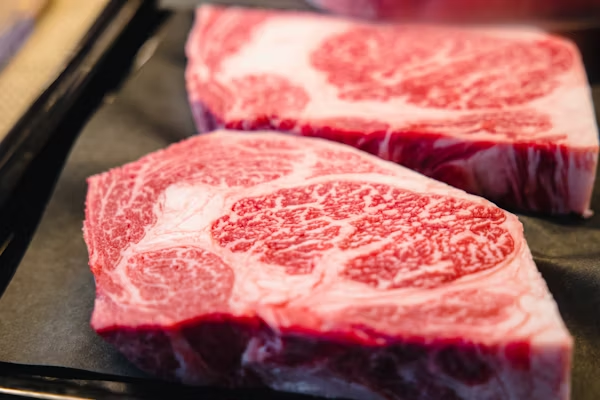British farmers are raising concerns about how border inspections will prevent hormone-treated beef from entering the UK market. The government assures that beef from the United States, which may contain growth hormones, will not make its way onto British shelves, even as a new trade agreement increases the beef trade between both nations.
There is growing anxiety among agricultural groups and the public that this agreement could allow beef from cattle raised with hormones to accelerate growth, thereby entering the UK market.
Government Pledges Strict Certification and Inspection Regime
The UK government has committed to a clear certification process and rigorous border inspections to ensure hormone-treated beef does not enter the country. However, the National Farmers’ Union (NFU) is calling for further clarification on how these measures will be implemented in practice to protect national food safety regulations.
Darren Jones, Chief Secretary to the Treasury, reassured the public that food safety laws remain intact and would not be altered due to the trade deal. He stressed that border enforcement agencies are equipped to detect hormone residues in imported meat and that legal consequences would follow any violations of the rules.
Farmers Voice Fears Over American Imports
Ian McCubbine, a cattle farmer from Surrey, expressed significant concern about the potential influx of American beef following the new trade deal. During an interview on national radio, he questioned how the public could be sure of the substances used in the production of US beef. McCubbine reminded listeners that Britain had spent over five decades building a farming sector based on high environmental and animal welfare standards. He fears that US imports could undermine that hard-won progress with meat that does not meet the same stringent standards.
The UK banned hormone-enhanced beef in 1989, in line with the European Union’s ban, which was prompted by health concerns. Despite this, hormone use in American beef production remains common, with hormones used to increase muscle mass and promote faster growth in cattle. This results in cheaper beef prices, but many consumers remain wary of the potential health risks.
Consumers Push Back Against Hormone-Treated Imports
While US and Australian authorities maintain that hormone-treated beef is safe for consumption, many UK consumers are skeptical. On social media, numerous shoppers have expressed their intention to exclusively purchase British-sourced beef in the future.
Under the terms of the new trade agreement, Britain will allow up to 13,000 metric tonnes of tariff-free American beef annually. This equates to approximately one medium-sized steak per UK adult per year. Currently, Britain imports about 1,000 tonnes of beef annually, which incurs a 20% tariff, according to the Department for Environment, Food and Rural Affairs (Defra).
In exchange, British producers are also granted the opportunity to export up to 13,000 tonnes of beef to the United States with reduced tariffs.
Broader Trade Deal Raises More Concerns
The trade agreement also includes tariff reductions on British-made vehicles shipped to the US and American ethanol imports into the UK. While some see the deal as beneficial for the economy, others are worried about the implications for food standards.
Liz Webster, founder of Save British Farming, voiced her concerns on social media, claiming that in exchange for tariff reductions on luxury automobiles, the UK has essentially opened its doors to US beef and ethanol. She questioned how the country would enforce food safety standards when existing border checks are already under strain.
Calls to Support Local, Certified Beef
As concerns about hormone-treated imports grow, some social media users are encouraging others to buy locally produced beef with certified conditions. Many shoppers are turning to the Red Tractor label, which guarantees that the meat has been produced in the UK under strict guidelines. One commenter said they would continue supporting their local butcher, who sources beef directly from nearby farms and can verify the origins of the cattle.
Defra has clarified that US suppliers will be required to maintain robust monitoring systems and provide certification to ensure they meet British food safety standards. A Defra spokesperson also explained that hormones are usually introduced during the final stages of cattle growth, making it easier to detect any residues through testing.
In conclusion, while the UK government maintains that proper measures will be taken to prevent hormone-treated beef from entering the market, uncertainty remains among farmers and consumers. The balance between trade benefits and maintaining high food safety standards will likely remain a point of debate in the months to come.


